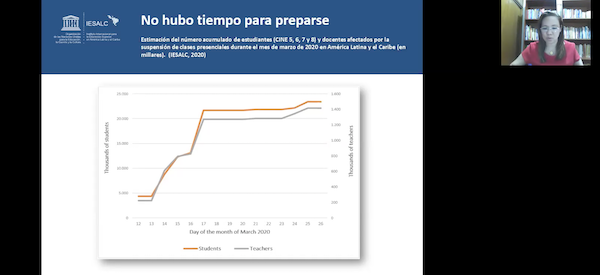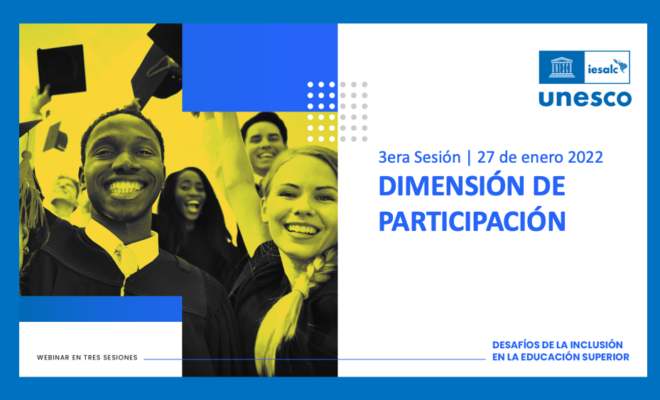International Colloquium “Impact of COVID-19 on Education” of the University of Cartagena

 The RUDECOLOMBIA Doctorate in Educational Sciences of the University of Cartagena organized the International Colloquium «Impact of COVID-19 on Education, on August 18th, 19th and 20th, 2020. On August 18th and 19th the virtual meetings focused on a contextualized reflection on the experience of teachers, while on Thursday, August 20th, the event was dedicated to the position of international organizations regarding higher education.
The RUDECOLOMBIA Doctorate in Educational Sciences of the University of Cartagena organized the International Colloquium «Impact of COVID-19 on Education, on August 18th, 19th and 20th, 2020. On August 18th and 19th the virtual meetings focused on a contextualized reflection on the experience of teachers, while on Thursday, August 20th, the event was dedicated to the position of international organizations regarding higher education.
The Academic Specialist at the UNESCO International Institute for Higher Education in Latin America and the Caribbean (IESALC), Débora Ramos, participated the last day of the meeting, as well as the Doctor of the University of Salerno, Antonio Scocozza. Academic Coordinator of the Virtual International Internship of the RUDECOLOMBIA Doctorate in Educational Sciences, Ana Julia Bozo de Carmona, moderated the event.
Ramos began her presentation by showing key elements to contextualize the effects of COVID-19 in higher education. According to IESALC estimates, the temporary closure of higher education institutions (HEI) in Latin America and the Caribbean has affected 23.4 millions of students, representing 98% of the student population in the region. She also emphasized that 1.5 million teachers, 300,000 administrative workers and 15,000 HEI have been affected since March 12, when began the closure process in Colombia and Peru, which then expanded throughout the continent.
The IESALC academic specialist also pointed out that 20% of students in the region will not return to face-to-face classes, while in the United States, it would be 1 in 6 students. Among other elements, she highlighted that student mobility was reduced, that there was a 5.3% drop in gross domestic product (GDP) according to the Economic Commission for Latin America and the Caribbean (ECLAC), that there have been and will continue to be difficulties in the renewal of contracts within HEIs, among others.
Ramos stressed that hand in hand with the government, HEIs must undertake emergency remote teaching as did the Ministry of Education of Peru (Minedu) who launched a call to support the educational continuity of 13 of the 52 public universities in the country, with the financial support of the Inter-American Development Bank (IDB).
For his part, Antonio Scocozza held a more political speech. According to the specialist, “online education has been catastrophic” and argued that “face-to-face education is not substitutable for virtual”. He also stressed that during the pandemic they have tried to close the critical thinking training centers, contrary to the essence of the universities that, according to Scocozza, must create methods to transform the world and place man at the center.
Ana Julia Bozo de Carmona reflected on the need for duality to exist in post-pandemic times, which means that virtual and face-to-face education can coexist harmoniously.
Watch the webinar.
RELATED ITEMS








